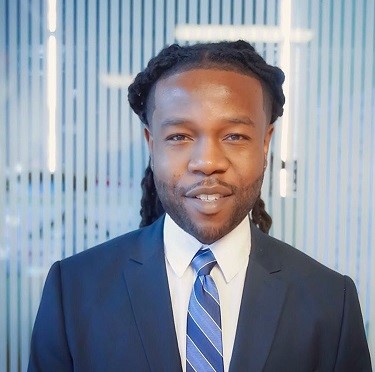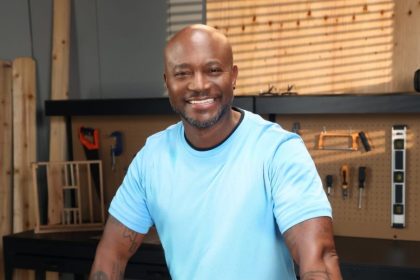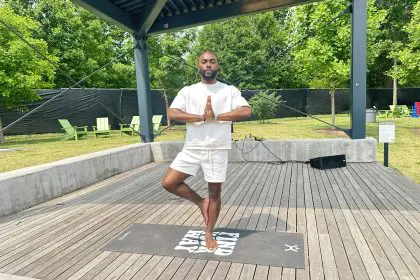
Southwest Atlanta native Evan Pitts has dedicated his time and energy to identifying solutions that address barriers to equitable health care. He has developed several health initiatives that have positively impacted individuals with HIV seeking care, and he spearheaded the development of Ryan White and SAMHSA supportive programs for a small national nonprofit. He currently serves as the program coordinator for the Georgia AIDS Education Training Center at Morehouse School of Medicine.
Why did you choose to focus on this area of health?
A few years back, I volunteered for a national nonprofit focused on improving health care outcomes for MSM (males who have sex with males) populations in the metropolitan Atlanta area. The organization provided free HIV screenings and later expanded to provide support services related to HIV care. I had no idea that improved health care outcomes were associated with factors such as access to housing, food, mental health and substance abuse services. I now understand the importance of advocacy and the impact a cultural connection can have on someone during a sexual health screening. I also understand the importance of having someone from similar lived experiences involved in the care determination process.
In the fight to eradicate HIV, what are three key challenges?
Three main challenges in eradicating HIV are fragmented health care systems and HIV prevention efforts, unfair resource access for rural areas, and stigma. Fragmented health care systems leave pockets of high-risk demographics vulnerable, [such as] HBCU populations, rural populations, etcetera. Unfair resource access for rural areas makes it difficult for patients to engage in services beyond their clinical needs, [such as] mental health counseling, substance abuse counseling, supportive housing, food assistance, etcetera. Fragmented HIV prevention efforts make it increasingly difficult to initiate comprehensive care for newly HIV-positive individuals.
Is there still a stigma in the Black community when it comes to HIV?
There is still a glaring stigma associated with HIV in the Black community. Dialogue around sex is still taboo in our culture, so it is no surprise that there has been no traction on improving the conversation around HIV.
How do we remove the stigma?
I believe stigma can be addressed by educating the masses on the realities of HIV and how it truly manifests and impacts the body. While education is key, I feel the method needs to evolve just as technology has. We must determine the best ways to communicate this vital information to individuals who need to hear it most.
The HIV conversation appears to have lost momentum. How do we start the dialogue within our communities and especially with millennials?
I believe it will take a comprehensive, multidisciplinary approach to start [a] dialogue within our communities and with our millennial generation. We would need to look at the intersections of health policy and education reform to determine how to standardize sexual health education in the classroom setting. I would also recommend that we look at the role technology, specifically social media, plays and determine how we can incorporate it as part of the solution.














